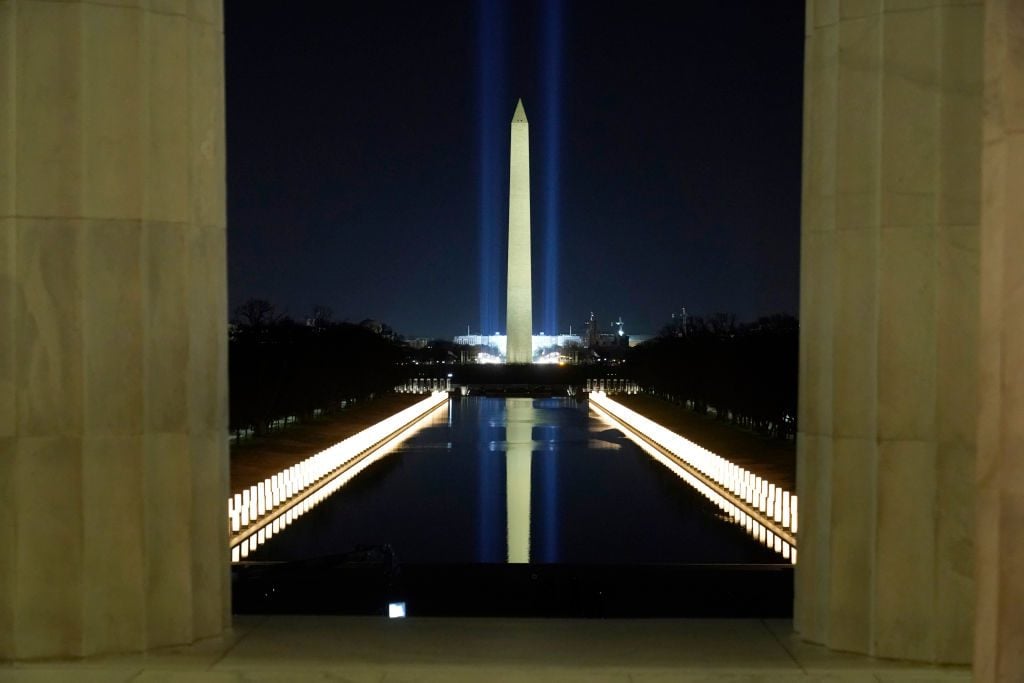Politics
President Biden Demanded the Chairman of the U.S. Commission of Fine Arts Resign. But the Trump Appointee Refuses to Leave
The chairman said he was "shocked and dismayed" at the request that he resign.

The chairman said he was "shocked and dismayed" at the request that he resign.

Zachary Small

On Tuesday afternoon, President Joe Biden announced that he would appoint four new members to the U.S. Commission of Fine Arts, which oversees the design and architecture of federal buildings in Washington. But the president’s appointees—all celebrated architects and designers—might find themselves off to a rocky start.
Three holdovers from the Trump administration, including the commission’s chair, are refusing to resign to make way for the new members in what they say is an unprecedented attack on the commission’s independence.
“I was shocked and dismayed,” said the chairman, Justin Shubow, who rejected the White House’s written request. “Nothing like this has ever occurred in the 110-year history of the fine arts commission.”
The Biden administration’s request came on Monday afternoon in a formal letter signed by Catherine M. Russell, an assistant to the president.
“Should we not receive your resignation, your position with the Commission will be terminated effective 6:00 p.m. tonight,” said the letter, which Artnet News reviewed.
When President Donald Trump appointed Shubow in 2018, many architects viewed his ascendence as representative of the government’s decision to elevate neoclassical style to the detriment of more contemporary designs. (Appointees do not require Congressional approval, meaning the president’s appointment is all that is needed to secure the position.)
The National Civic Art Society, a nonprofit opposing Modernist architecture that Shubow is closely associated with, was instrumental in drafting an executive order signed in the twilight months of the Trump administration that aimed to establish classical architecture as the preferred style of new federal buildings. Groups like the American Institute of Architects and the National Trust for Historic Preservation opposed the order.
Shortly after Joe Biden assumed the presidency, his administration began undoing his predecessor’s promise to make “federal buildings beautiful again.”
In February, the White House revoked Trump’s executive order and instructed the Office of Management and Budget, which oversees the implementation of executive branch actions, to “promptly consider taking steps to rescind any orders” related to Trump’s decree on architecture, including the abolishment of any “personnel positions, committees, task forces, or other entities established” used to support it. That month, Biden also removed key appointees to the boards that oversee Washington’s preservation and planning.

The Washington Monument is reflected in the Lincoln Memorial Reflecting Pool during a televised ceremony on January 20, 2021, the day of Biden’s inauguration. Photo by Joshua Roberts-Pool/Getty Images.
Earlier this month, the president scrapped the previous administration’s plan to create a “garden of heroes” that would have memorialized figures such as George Washington and Kobe Bryant in an effort regarded by historians as a reaction against the vandalization of Confederate monuments last summer.
But until now, the president has rarely found resistance in rolling back the aesthetic decrees of his predecessor.
“I have served on the commission honorably and well, and indeed was elected chairman by my fellow commissioners,” Shubow wrote in his response rejecting the White House’s request. “I am a well-qualified judge of the fine arts.”
Shubow said he never received a response from the administration, and on Tuesday afternoon, President Biden announced the four new commissioners to replace the Trump appointees.
“President Biden is proud to nominate this extremely qualified and well-respected group of professionals to the Commission on Fine Arts,” a White House official told Artnet News. “They will bring to the Commission a diversity of background and experience, as well as a range of aesthetic viewpoints.”
Biden’s four choices are Peter Cook, an architect who worked on the Smithsonian Institution’s National Museum of African American History and Culture; Hazel Ruth Edwards, a professor in Howard University’s architecture department; Billie Tsien, an architect whose firm designed the Barack Obama Presidential Center; and Justin Garrett Moore, former director of New York City’s Public Design Commission and a program officer with the Andrew Mellon Foundation.
In December, Moore tweeted a Bloomberg article criticizing Trump’s fine arts commission. “All seven members of the Commission on Fine Arts are now white men,” he quoted from the article. “Trump’s fully staffed commission is the first to include only men since 1963 and the first all-white one in a decade.”
Biden’s four appointments will tip the balance of power in the seven-person arts commission, providing the commissioners with a chance to elect a new chair. (The three appointees who were not asked to resign were also installed by Trump.)
Speaking with Artnet News, Shubow said he intended to continue acting as the chairman until the White House responded to his refusal with some clarity on its legal justifications. But as the Biden appointees settle into their new roles, that may leave the critic of modernist architecture as a pope without a pulpit.
“This represents an attack on classical architecture,” Shubow told Artnet News. “It’s especially sad since the classical architecture of Washington D.C. is beloved.”